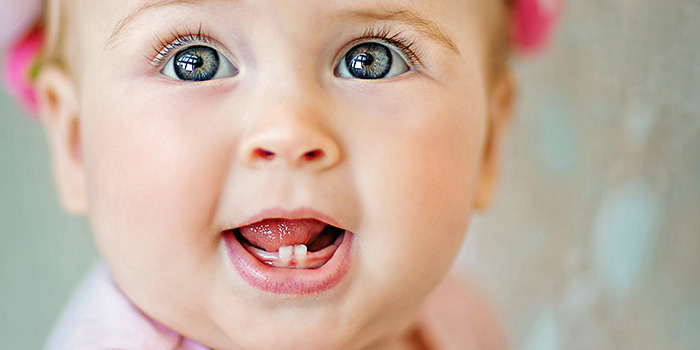May 7, 2019
Most individuals believe cavities in baby teeth are not a cause for concern as they are not permanent teeth. However, this could not be further from the truth.
Cavities in baby teeth can cause serious harm and it affects the way a young mouth develops. This also includes speech and jaw development.
When cavities are left untreated, your child may experience:
- Pain and discomfort
- Higher chance of developing cavities in adult teeth
- Dental anxiety
- The need for extensive dental treatment

What is a tooth cavity?
A cavity presents as a hole when the dentin and enamel layers of a tooth break down.
The process of developing a cavity starts with bacteria. As bacteria feed on the sugars and carbohydrates in the foods we eat they produce acid as a biproduct. This acid dissolves the tooth’s enamel causing decay.
Once the enamel layer has been compromised, bacteria can reach the inner dentin layer of a tooth. When bacteria dissolve the dentin layer, a cavity is created.
However, the process does not end there. When a cavity is left untreated, it will continue to grow and eventually reach the centre layer of a tooth – the pulp. The pulp layer contains vital nerves and connective tissue which keep the tooth alive.
What are the early signs of cavities?
Below are several symptoms and signs of tooth decay. Keep in mind, symptoms may present differently for each child.
- White spots can indicate tooth enamel is beginning to breakdown
- Light brown spot/s on teeth can be a sign of tooth decay
- A light brown spot has deepened to a darker shade of brown or black. This may be a sign the cavity is becoming deeper
- Tooth pain or sensitivity
What causes cavities in baby teeth?
There are several factors that can increase your child’s risk of developing cavities. They are:
- Medicines/prescriptions
- Diet high in carbohydrates and/or sugars
- Fluoride free water supply
- Dry mouth
- Improper oral hygiene routine

How can I prevent cavities in baby teeth?
You can help keep your child’s teeth healthy and prevent cavities by following these tips:
Brush Regularly
Keep a regular tooth brushing routine as soon as a tooth appears. This means brushing twice daily – once in the morning and once at night.
Floss Daily
From 2 years of age, you should floss your child’s teeth.
Fluoride Free
For children under 9 years old, use a fluoride free toothpaste. Your child will receive enough fluoride through drinking water at this stage.
Give them help
Children generally need help brushing their teeth properly until they are 10 years old.
Healthy Diet
Our teeth need a balanced diet to stay strong and healthy. This means, eating a diet rich in minerals such as leafy greens, fish, carrots and almonds helps keep your child’s teeth in good form.
Limit Sugar Intake
Sugar feeds cavity causing bacteria, so make sure you limit snacks that are high in sugar. You can learn more about the most surprising sugary lunchbox snacks in our blog post.
6 Monthly Dental Visits
Regular check-ups can help to detect tooth decay and diseases early. We can also show you areas of your child’s oral hygiene routine that may need improvement.
As well, visiting the dentist early can create a positive association with this dentist. This way, your child may not develop dental anxiety.
At Coastal Dental Care, we work with you to help establish good oral health habits early. Our dentists are highly trained and will do their best to make your child’s visit a positive one.
You can read more ways to prevent cavities here.
How are cavities treated in children?
The treatment chosen for cavities is largely dependent on the severity of the decay. Your dentist will choose a treatment method depending on your child’s case.
In saying this, the most common treatment method for tooth decay is a filling. The decay is filed away, and a tooth coloured resin is inserted to seal the area from bacteria. This prevents bacteria from causing further erosion to the area.
For advanced tooth decay in older children, metal dental crowns may be required. Dental crowns help restore the tooth’s structure which may have been compromised.
Book an appointment
Early dental visits are important to help your child establish good oral habits. Book an appointment with one of our family friendly dentists today!

